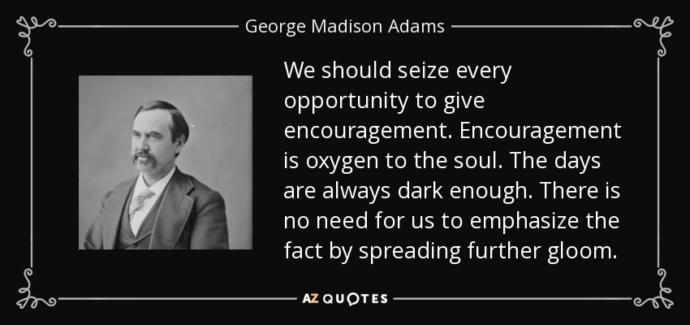Meet Tim:

Tim likes to think of himself as a relatively positive guy. In fact Tim's family and friends also think he's a great influence and likes to keep the mood light even when clouds arise in life. In this scribbling of thoughts I'll look at years later I intend to prove that Tim is in fact the opposite by means of looking at what Positivity is and also what it is not. First, the not, because negativity is my thing.
You Cannot Be Positive In Reactionary Situations
Tim's car breaks down on his way to a very important meeting!

Oh, no. Tim has two main options for reaction:
"What? Fuck! Fucking fuck goddamnit fuck shit fuck bitch fuck damn! UGH!"

OR
"Well, at least the weather is nice! I always did think I needed a little more fresh air anyway and it's a good day for a stroll! ... Ahhhh, blessings in disguise."

Which of these is the most positive of the two responses? If you answered the latter, you're wrong, and if you answered the former, you're also wrong, because neither of these responses is actually a positive response. While the first is obvious the second may not be. The reason the second is not positive is because it is completely reactionary. Tim doesn't want to walk and definitely isn't making the trek any easier by pretending that walking is a blessing. No, no Tim, bad things happen and it is okay for them to be bad.
You Cannot Be Positive Regarding Imaginary Scenarios
Tim walks down to the office where he was supposed to interview only to find that a fire had occurred in the meantime killing two people in the room he was to be interviewed in with him being approximately two hours late due to the breakdown.

Tim, always the positive man, has two options for thought:
"Due to my being late the interviewer may have been somewhere he would not have been if I had been on time saving his life. All those years as an Eagle Scout gave me a good chance."

OR
"It's a good thing I was late or else I could have died in this fire! Who knows?!"

I won't do the same thing twice and ask you which is more positive but I will explain both. The first option is an option that refers to personal responsibility; it is possible that Tim may not have saved anyone and very possible that the outcome may not have changed or he may have died. However, it needs to be noted that the second option works in the negative by avoiding responsibility and posing that luck was on his side not only making light of the fact that bad fortune had befallen him earlier but now bad fortune had befallen other people and it was completely by the grace of all good things that he doesn't have to deal with it!
The latter takes on many forms in daily life that don't involve such tragedies. One of the more common I think is almost always something relative to a friend getting in trouble and the observer is happy that they were not there to get into trouble too instead of wondering if they could have prevented the trouble to begin with. Generally those types of thoughts are welcome as positive because the more severe the consequence the "luckier" one is but ultimately they are definitely negative and contrarian.
You Cannot Be Positive About Eventualities
Tim leaves the site of the fire and finds out that his automobile bill is $3,000 to repair upfront and weighs this versus buying a new car at $10,000 over a number of years.

Tim knew this was coming because it had been that very day and time has two options by which to react:
"This is unfortunate that I have to choose between these but no matter what it ruins this years' vacation. Today has been terrible!"

OR
"Good! I'll make a decision and then I'll just work harder and go on a better vacation next year! Industry is the path to success!"

Tim's eventuality, paying for the car, is not a positive thing and is a continuation of a negative thing. His spin on the idea is really just setting him up to burn out. Now I must say that this is common because what happens in life is a lot of people segment problems so that they can be inconsistent between reactions. I would not say that this is a form of coping because the above is clearly a blatant self-lie and thusly shouldn't be encouraged.
In common parlance this comes out to be things such as failing a test and deciding that it's a good learning opportunity when the idea was that you should have learned it before the test. The fact that you failed is not a learning opportunity so much as it is a notification that you didn't learn anything! The problem with the positive spin is that it minimizes the effect portion of "Cause and Effect" when that isn't advisable because the greater the minimization the more prone you are to either repetition (failing again) or anguish (burning out).
Positivity Is Only Possible Regarding Pivotal Choices
Tim's leg suddenly falls off for no reason.

Now Tim was a runner so he was going to run in a local marathon. This won't happen this year for certain, so says his doctor, but he will likely never run again competitively with normal individuals. Tim has two choices:
"Fuck. I quit. Life isn't worth living. I can't believe I lost my leg! What am I supposed to do with myself now? I've lost everything. I could have been the best, I had been training, I knew the odds and I am the fastest one here; all that training for nothing."

OR
"Alright. This happened and is real. I better get to calling the people who run the Special Olympics. I enjoy running and I will not give it up due to this. It will different and I may not win the race I trained for but I will still compete as able."

The latter is positive. It is a choice. It is not reactionary because the natural reaction to loss is to surrender. It is not painting an imaginary scenario where Tim believes if it hadn't happened that he would have been the best runner in the city nor does he feel that he's dodged a bullet and watches the news like a hawk to find where that bullet may have been. It does not attempt to make note of the eventuality of age and the fact that someday Tim might genuinely have been unable to run and thus simply accepted this as an accelerated version of this state.
In my experience the saddest thing is that people often like Tim in his first three roles but if nothing else abandon Tim in his final bid for actual positivity. The first thing usually is that people immediately respond with "Why would they discourage him!" but they fail to realize that they aren't being discouraging on purpose. Tim still has to deal with the loss of his leg, the latter response is rarely the immediately response, it takes time and in that time, that window, the first response is all people hear and they react by patting him on the back rather than suggesting alternative courses.
In real life, your life perhaps, you've had failure and people simply tell you that they are sorry to hear of it but not do anything more. The difference between Tim being bitter all of his life and becoming a Special Olympics champion is not his willpower or positivity or anything else. The part of the story that is missing is that someone came to Tim and noted his hard work and said,
"You know, it doesn't end here."
And so I quit with one last question:
Was that person you?

What Girls & Guys Said
Opinion
0Opinion
Oh gosh, all I can think of is that foot